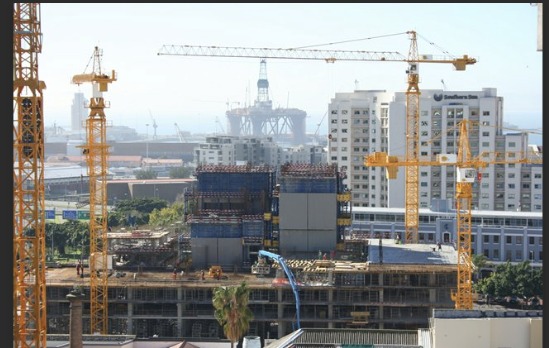
Infrastructure development is essential for economic growth and development in any country. Ghana, like many developing nations, has a pressing need for infrastructure development to support the country’s long-term growth objectives. While significant progress has been made in recent years, Ghana still faces significant challenges in addressing its infrastructure gaps. This article will explore the opportunities and challenges facing infrastructure development in Ghana and potential solutions to these challenges.
Opportunities for Infrastructure Development in Ghana
There are several potential sectors for investment and growth in Ghana’s infrastructure development. One such sector is transportation. Ghana has a rapidly growing population, and the demand for improved transportation infrastructure is high. The country’s road network needs significant upgrades, particularly in rural areas where many unpaved roads are poorly maintained. Improving the country’s transportation infrastructure will help to boost economic activity, promote trade and investment, and improve access to markets and services.
Another potential area for infrastructure development is energy. Ghana has significant untapped energy resources, including hydro, solar, and wind power. The country has made progress in recent years in developing its energy sector, but there is still significant room for growth. Developing a reliable and sustainable energy supply is critical for attracting investment and supporting economic growth.
Finally, the telecommunications sector also presents significant opportunities for infrastructure development. The increasing use of mobile phones and other digital technologies in Ghana has created a demand for improved telecommunications infrastructure, particularly in rural areas with limited connectivity. Improving telecommunications infrastructure will help to promote economic activity, improve access to information and services, and support the development of new industries.

Challenges Facing Infrastructure Development in Ghana
Despite the significant opportunities for infrastructure development in Ghana, there are also significant challenges that must be addressed to make progress. One major challenge is funding. The cost of infrastructure development is high, and Ghana faces significant funding gaps. This is particularly true for large-scale infrastructure projects, such as the construction of new roads or the development of large-scale energy projects.
Another major challenge facing infrastructure development in Ghana is policy constraints. In many cases, government policies and regulations can hinder progress and create barriers to investment. For example, complex and cumbersome licensing and permit processes can deter investors, while unclear or inconsistent regulations can create uncertainty and risk for potential investors.
Finally, environmental and social impacts must also be considered in infrastructure development projects. Infrastructure development can have significant environmental and social impacts, such as deforestation, loss of habitat, and displacement of local communities. It is important to ensure that infrastructure development projects are designed and implemented in a way that minimizes these impacts and promotes sustainable and inclusive growth.
Solutions for Overcoming Infrastructure Development Challenges in Ghana
To address the challenges facing infrastructure development in Ghana, innovative financing mechanisms are needed. Alternative funding options such as blended finance, public-private partnerships, and infrastructure bonds can help to bridge funding gaps and leverage private sector resources and expertise.
Policy reforms are also needed to promote and support infrastructure development. This could include streamlining licensing and permit processes, improving regulatory frameworks, and providing incentives for private sector investment in infrastructure projects.
Finally, international finance institutions can play a critical role in supporting infrastructure development in Ghana. By providing financing, technical assistance, and expertise, international finance institutions can help to bridge funding gaps and support the development of sustainable and inclusive infrastructure.
Conclusion
Infrastructure development is critical for economic growth and development in Ghana. While the country faces significant challenges in addressing its infrastructure gaps, there are also significant opportunities for investment and growth. By addressing funding gaps, policy constraints, and environmental and social impacts, Ghana can continue to make progress in infrastructure development and achieve its long-term growth objectives.
Can Ukraine and Germany Overcome Their Disagreements Over Russia?


